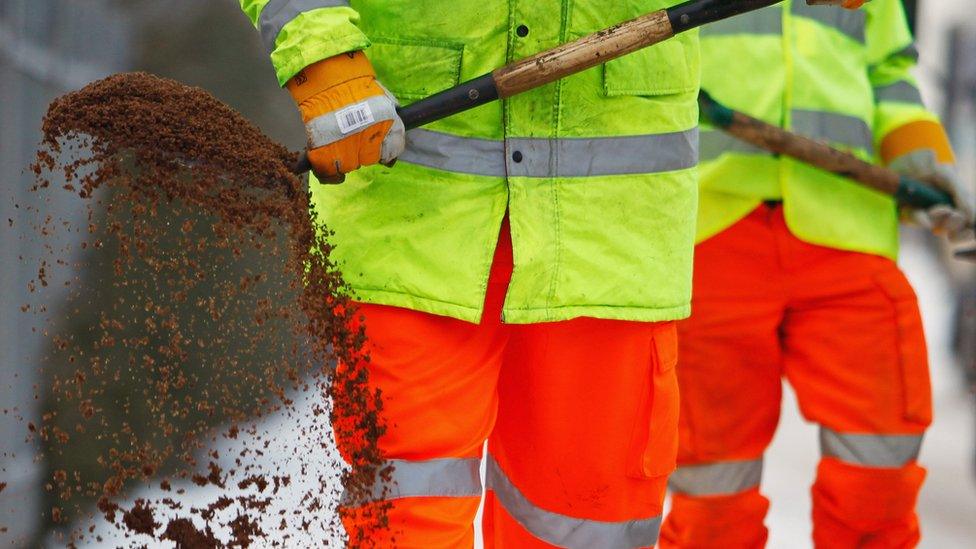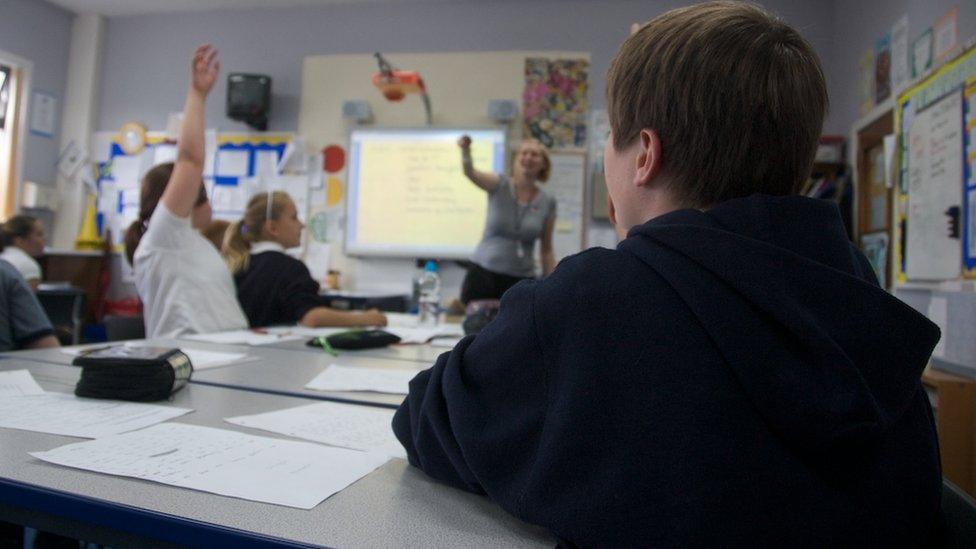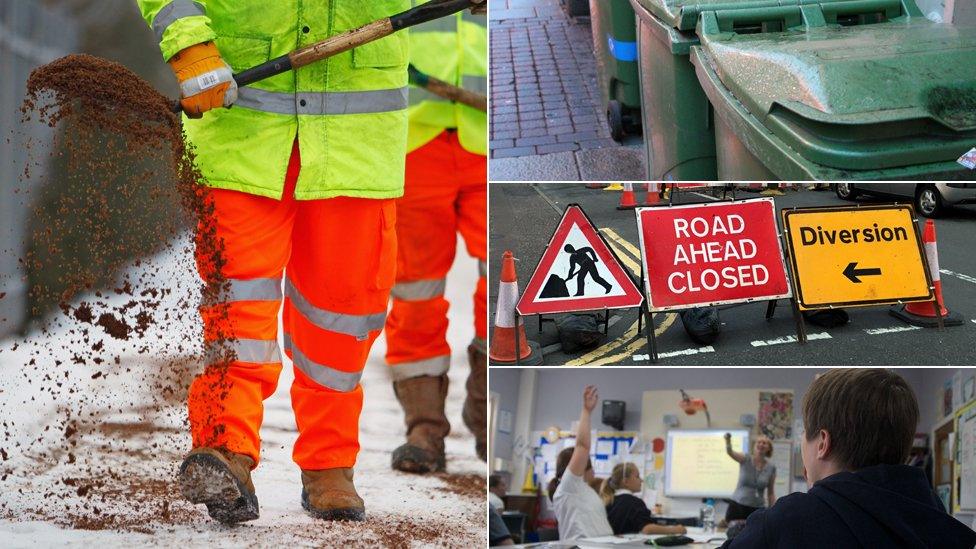Analysis: Scottish councils in debt
- Published

Councils often borrow money for big infrastructure projects
The Scottish Greens says the UK government should write off hundreds of millions of pounds of "unethical" loans made to councils in Scotland. Why did the councils take out these loans and how much of their income are they spending on paying them back?
As any financial adviser will tell you, there are two mains reasons for borrowing money - because the money is needed urgently or to make an investment in something like a house or a kitchen.
Generally speaking, borrowing to invest is seen as a good thing while borrowing to balance the books should be a last resort.
That basic rule of personal finance also applies to businesses and public services.
Councils have long borrowed money so they can invest in major projects - for example in new buildings or the local infrastructure. Some of that borrowing may have led to improved services or even have helped control everyday expenditure through, for instance, the use of new technology.

Councils are under a legal obligation to produce a balanced budget. They do not borrow money simply to pay for the running costs of local services or staff wages.
But there is a potential problem if the repayments become more significant than originally expected. They might seek to re-arrange the payments, paying less every year but taking longer to clear the debt.
An analysis by the Scottish Greens found that councils are typically spending about 42% of the money raised by the council tax locally on servicing debts.
It sounds like a frightening figure. But the council tax only accounts for about 15% of a typical council's budget which means that servicing debt would actually make up about 6p in every pound of a council's kitty.
But at a time of tight budgets, that 6p in the pound could prove very significant. It could be the money that might otherwise have been spent on a service currently facing cuts.
A report from the Accounts Commission last year said Scottish councils had a total debt of £14.8bn - £12.1bn of which was from borrowing. It argued councils needed to develop detailed analysis to support borrowing decisions and to demonstrate they represented best value.
An important ongoing issue for many in local government is the relatively small amount of control they have over their budgets.
In effect, the council tax is the only significant source of money they control.

The biggest chunk of their cash comes from the Scottish government - the amount they get is determined by a complex formula which also takes into account how much is raised locally in business rates which are at a nationally-agreed level.
Some in local government and some opposition parties, including the Greens, were disappointed when the Scottish government decided against radical reform of the council tax earlier this year.
Changes next spring to the amount paid by people in the top four council tax bands will go to headteachers to spend on schemes to raise attainment. The money will not go to general council budgets.
Councils will be able to raise the council tax for everyone by 3% next year but it is still impossible to say with certainty how much more money each council will have. That will depend on how much they receive from the government.
By implication, if councils had more money overall they would be spending a smaller proportion of their income servicing debts.
The Greens advocated replacing the council tax with a land value tax. In general, they would also like to see councils be less dependent on central government and have much more control over how much money they have at their disposal.
An awareness of how much money councils are spending servicing debts could certainly help colour the bigger debate on council budgets.
- Published16 November 2016

- Published5 October 2016
